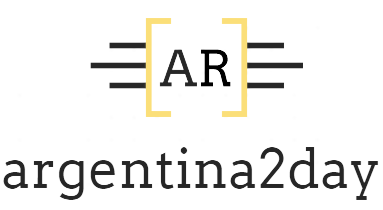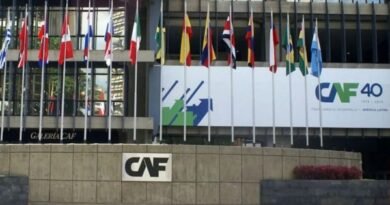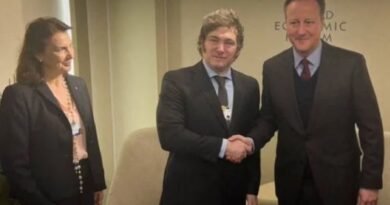Buenos Aires: “Blue” dollar keeps going up amid police raids
[ad_1]
Buenos Aires: Blue dollar keeps going up amid police raids
Aníbal Fernandez explained that they were trying to arrest a mysterious group known as the liquidators
Argentina’s Central Bank (BCRA) Wednesday sold US$ 130 million and 288 million yuan (around US$ 40 million) in a desperate move to keep the blue (a euphemism for black market) quotation from soaring any further after reaching AR$ 527 / US$ 1.
In addition to that, unofficial exchange parlors in Buenos Aires were raided by Economic Criminal Justice and the AFIP tax bureau authorities in order to deter buyers and sellers of the US currency. The Financial Information Unit (UIF) and the Federal Police were also involved in the operations.
The objective is to find the people who intermediate with the brokers with pesos of black origin, Security Minister Aníbal Fernandez explained. He added on Twitter that they were looking to arrest a mysterious group called the liquidators.
It’s like raiding the National Meteorological Service because it rains a lot. In 20 years they did not learn to identify the root of the problems, that is why they broke everything, economist Alejandro Olaguer told La Prensa.
In this scenario, the International Monetary Fund (IMF) called for a gradual unification of the exchange rate, in addition to a restrictive monetary policy and the elimination of capital controls, according to the global agency’s External Sector Report (ESR), which analyzes the current account situation of member countries.
The ESR warned that Argentina’s 2022 external position was weaker than the level implied by medium-term fundamentals and desirable policies. The report notes that Argentina’s economy suffers from elevated external debt vulnerabilities, precariously low international reserves, and lack of access to international capital markets.
Potential policy responses are pro-growth fiscal consolidation; combined with tight monetary policy and a simplified exchange rate regime, remain essential to moderate domestic demand growth, strengthen the trade balance, rebuild international reserves, regain access to markets, and ensure fiscal and external debt sustainability, it said.
As stability and confidence are restored, a gradual easing of conditionality-based exchange market restrictions and the elimination of multiple currency practices and exchange restrictions should be considered, the document also said.
It further stated that the average real exchange rate, after depreciating by more than 35% between 2017 and 2019, appreciated by about 6% during 2020-21 and is estimated to have appreciated by an additional 20% during 2022. This appreciation largely reflects the fact that the exchange rate has lagged headline inflation.
An Argentine delegation is currently in Washington DC brokering a new loan to help control the local crisis ahead of this year’s presidential elections.
[ad_2]
Source link




